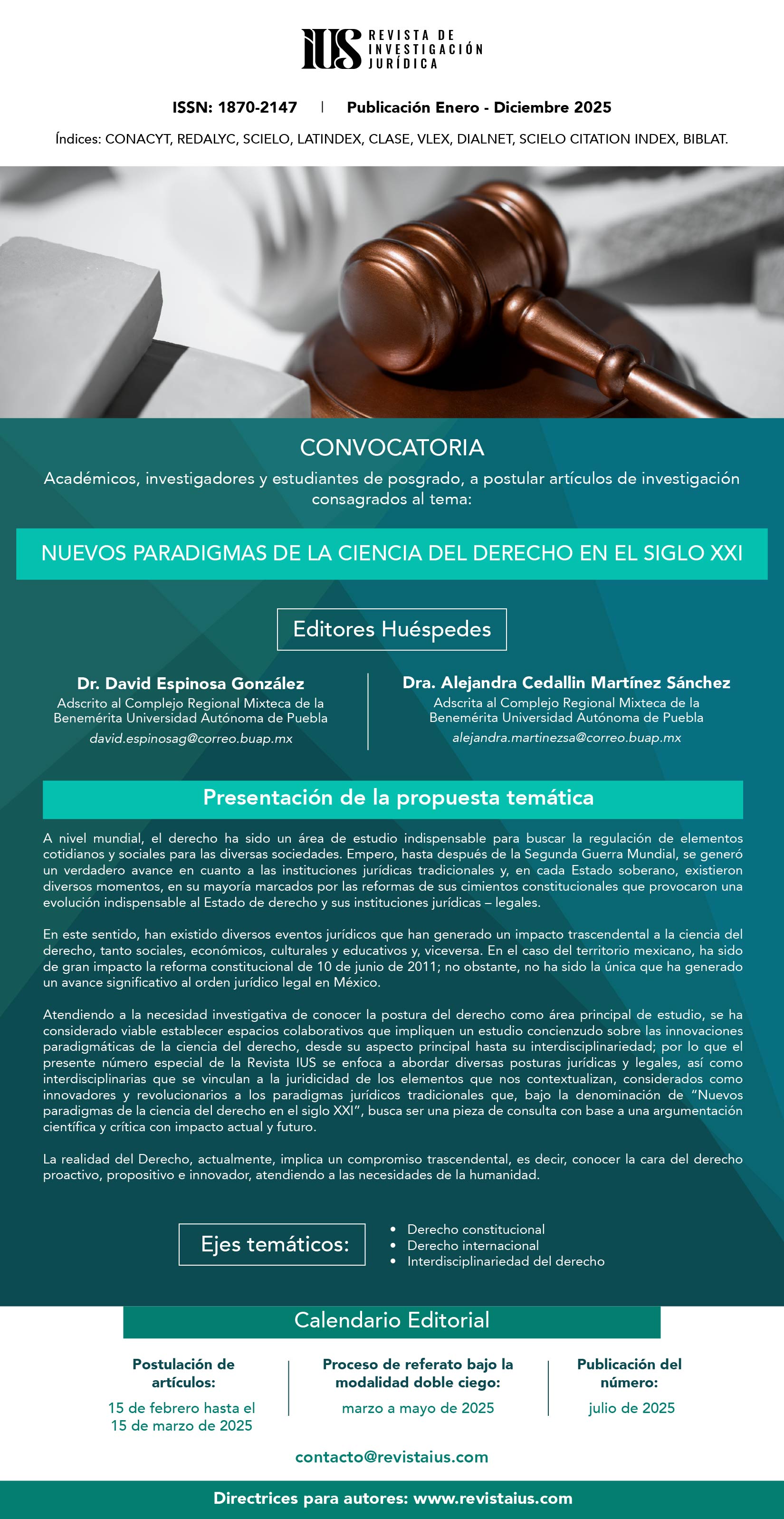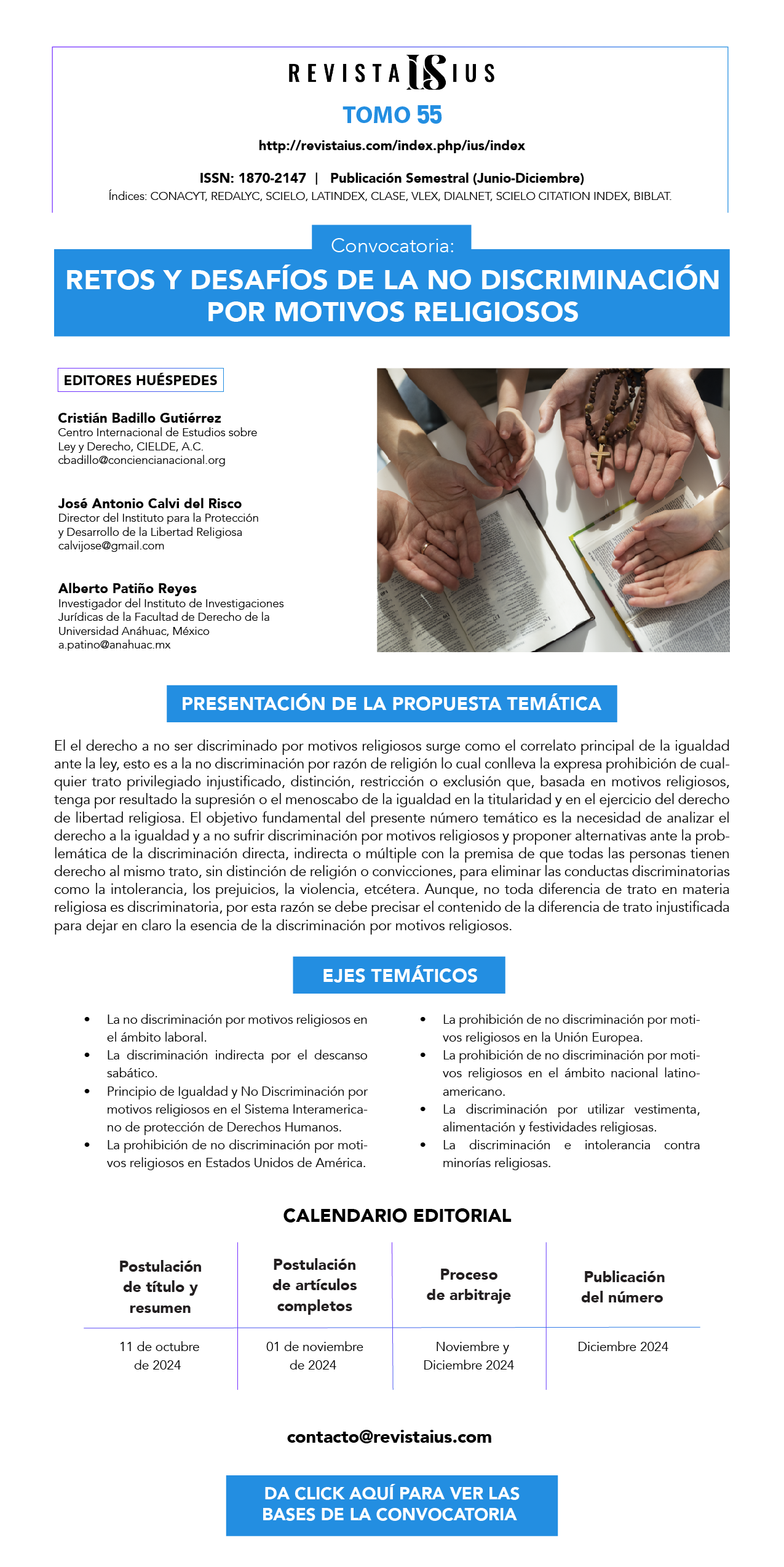Religious tolerance, a road still to travel. Foundations and definition from a human rights perspective
DOI:
https://doi.org/10.35487/rius.v19i55.2024.1049Abstract
In a globalized world, the confluence of multiple cultures has led to the interaction of diverse religions, making it imperative to speak of religious tolerance. This article will address the concept from its definition to its implications, as well as the historical and philosophical foundations that have laid the foundations for its understanding in today’s world. In addition, a reflection is made between the relationship of religious tolerance and other human rights, for the promotion of just and equitable societies around the world, as well as its impact on promoting the culture of peace today. To conclude, good practices in the exercise of religious tolerance are recognized, among them those carried out by the Interreligious Councils of Mexico, who are a reflection that cooperation between religions is possible.
Downloads
Downloads
Published
Issue
Section
License

This work is licensed under a Creative Commons Attribution-NonCommercial-ShareAlike 4.0 International License.
Revista IUS, published by the Legal Sciences Institute of Puebla A.C., is distributed under the Creative Commons Attribution-NonCommercial 4.0 International (CC BY-NC 4.0) license.
We authorize collaborators to upload a copy of their published work on their personal websites or any Open Access repository, provided that Revista IUS is specifically cited as the original source, indicating the year and issue of the respective example and adding the link to the webpage on which this publication can be freely consulted in toto and without charge: http://www.revistaius.com
Readers are free to:
Share, copy and redistribute the material via any medium or format.
The licensor cannot revoke these freedoms as long as you follow the license terms.
Under the following terms:
Attribution: You must give appropriate credit, provide a link to the license, and indicate if changes were made.
You may do so in any reasonable manner, but not in any way that suggests the licensor endorses you or your use.
NonCommercial – You may not use the material for commercial purposes.
If you remix, transform or build upon the licensed material, its distribution is not permitted.
Charges for managing articles: Revista IUS will not charge for receiving, processing or publishing articles (Article Processing Charge, or APC) submitted by authors.





